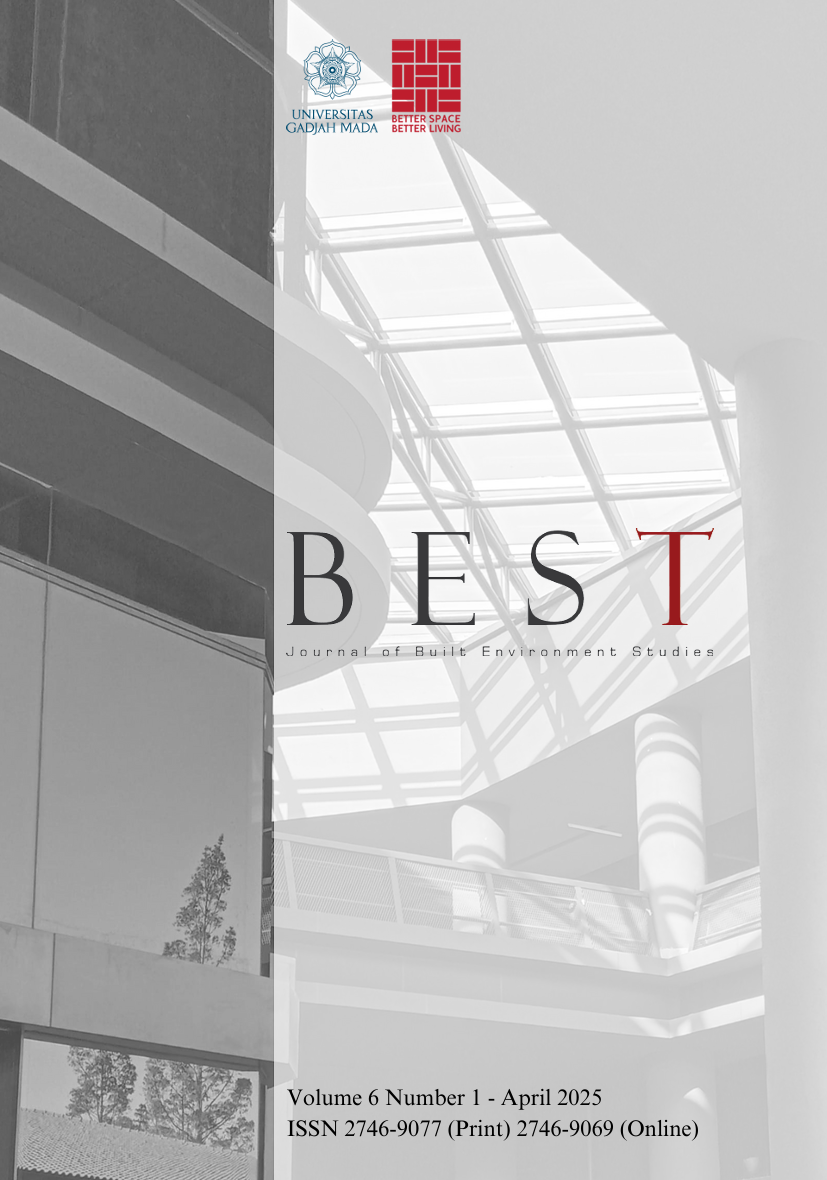Issue
Date Log
CULTURAL IDENTITY, SOCIAL DYNAMICS, AND ECONOMIC ADAPTATIONS: THE VERNACULAR ARCHITECTURE OF KAMPUNG INGGRIS PARE IN THE FACE OF MODERNIZATION
Corresponding Author(s) : Dian Nafiatul Awaliyah
Built Environment Studies,
Vol 6 No 1 (2025)
Abstract
Vernacular architecture critically reflects a community's cultural heritage, social structure, and economic dynamics. In Kampung Inggris Pare, Kediri, the architectural landscape has evolved alongside the village’s transformation into a prominent language learning hub. This paper explores how vernacular architecture embodies local traditions, facilitates social interactions, and adapts to economic shifts driven by the growth of language course institutions. The study addresses key questions: How does architecture in Kampung Inggris reflect cultural identity and tradition? How does it shape social dynamics and relationships? How has economic development influenced architectural evolution? What challenges does modernization pose to preserving cultural heritage? This research uses a qualitative literature study to analyze secondary data from academic journals, books, and reports on architecture, social dynamics, and economic changes in Kampung Inggris. Content analysis and preliminary ethnographic study were employed to identify patterns in architectural design, community engagement, and economic transformation. Findings reveal that vernacular architecture in Kampung Inggris integrates cultural symbols and reflects traditional Javanese cosmology, reinforcing community identity. Communal spaces within the architectural layout promote interaction and collaboration, fostering a sense of belonging among residents and visitors. However, economic growth, driven by the proliferation of language courses, has led to structural adaptations that accommodate businesses and students, raising land values and entrepreneurial opportunities. Conversely, modernization threatens to overshadow traditional architectural elements, risking cultural identity loss. This study concludes that a balanced approach to modernization and heritage preservation is essential to sustain Kampung Inggris' unique architectural identity while supporting its economic vitality.
Keywords
Download Citation
Endnote/Zotero/Mendeley (RIS)BibTeX
